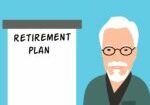It’s Never Too Early or Too Late – What You Need To Consider
To say there are many things to consider when planning for your financial future is an understatement. That’s why it’s important to have a plan for your future — and follow it.
Planning for your retirement income may seem like a daunting task, but we have some good news for you: We’ve been there before, and we can help you get a handle on preparing for your financial future with our list of the top 10 things you should do to prepare for your retirement.
Get an early start.
Ideally, you should start planning for your retirement income as soon as you get your first job, and reap the full benefits of compounding interest. Unfortunately, this is rarely the reality. If you’ve reached your 50s and haven’t started actively planning for your retirement yet, don’t be deterred. Take action now and start making up for lost time.
Define your cash flow.
If you haven’t already developed a budget for yourself, do it now. Defining your cash flow — how much money you have both coming in and going out — is your first step. Understanding your spending patterns will help you to know how much income you’ll need to create once you’re in retirement.
Spend less than you earn.
For some, this is a tough one, but still very necessary. The bottom line is you cannot expect to have money left over for retirement if you are currently spending more than you take in. Create a budget and stick to it!
Understand all of your options.
Research, research, research. There are many different ways to save for retirement, and you’ll want to understand the pros and cons of the various strategies, insurance products and investment vehicles before deciding which strategy to implement.
Calculate the risks.
It’s not a bad thing to invest in Wall Street. However, you may not want to put all of your eggs in one basket. Know the risks associated with investing and understand what your time frame may be to recoup any losses before you commit to anything. The fact is, as you near retirement, you have a much shorter time frame to recover from potential market downturns.
Create an income strategy.
A retirement strategy has two phases — the accumulation phase, in which you build assets to help fund your retirement, and the distribution phase, in which you use those assets to generate income in retirement. Don’t ignore Phase 2!
Have a tax-efficient strategy.
You’ll want to make sure you’re taking advantage of all of your legal options to help lower your taxes as much as possible, both while saving for retirement and once you start taking retirement distributions. Working with both a financial professional and tax advisor can help you understand your options.
Acknowledge inflation.
A retirement income plan that does not account for inflation could result in you having to adjust your lifestyle in retirement. Make sure your retirement income plan addresses the potential impact of increased inflation on your retirement assets.
Plan for a long life.
Given advances in medical care and a trend toward healthier lifestyles, it’s not uncommon for people to live another 20, 30 or even 40 years once they’ve retired. That’s great, but it also means your money needs to last longer.
Last but not least — recognize you might want help with all of the above.
That’s why we’re here. Our business is understanding the important things to consider when planning for retirement income, as well as the products and strategies that can help you pursue your goals. We want to help you live the life you dream of, and it all starts with having a strategy.
Thrive Financial Service
Call 800-516-5861
Schedule an In-person or Virtual Meeting
https://www.meetthrive.com/schedule-an-appointment
https://thrivefinancialservices.flywheelsites.com/financial-services/






